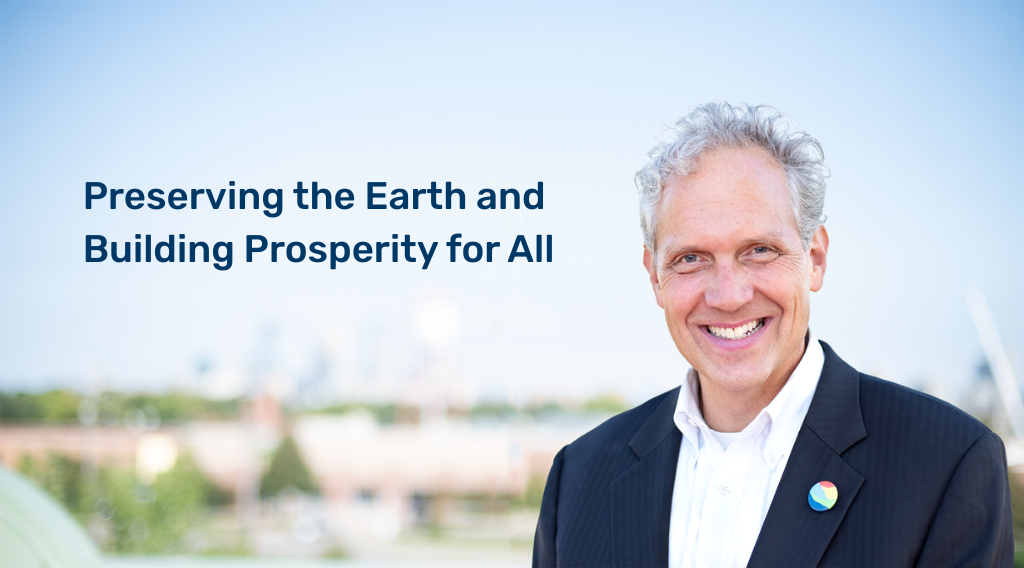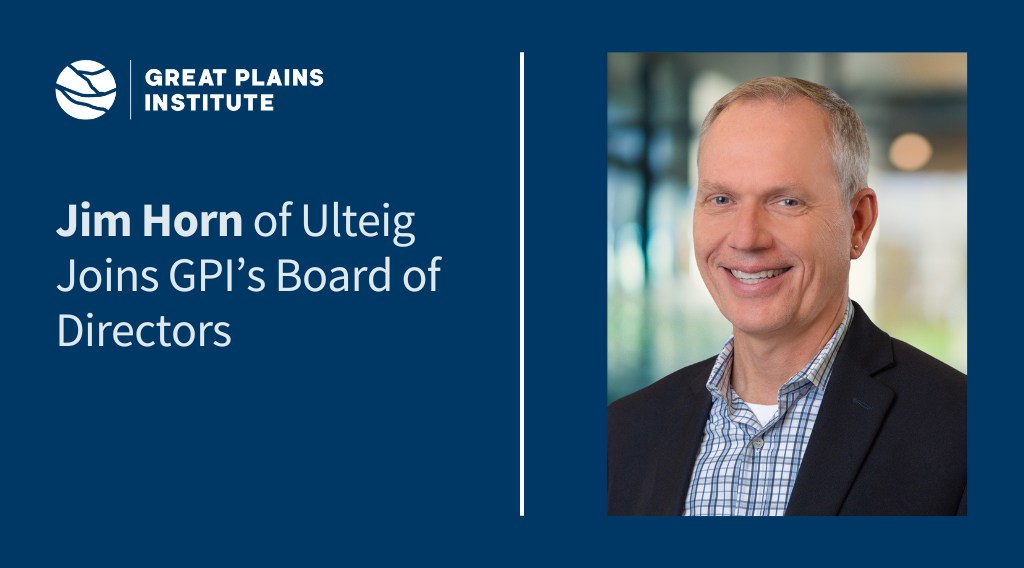
Dear Better Energy Community,
While so much is uncertain in our country right now, I am sure of one thing; Midwestern and Gulf Coast states are essential to the economic recovery in the US.
The recovery is even more challenging with an already devastating hurricane season on the Gulf Coast, destructive wind storms in Iowa, and wildfires in the west. Our hearts go out to everyone impacted by these disasters. It has added even more urgency to our already urgent work.
The Great Plains Institute (GPI) is eager to see the entire nation back on its feet as quickly as possible. Our particular focus on the center of the country stems from our deep roots in the region and its outsized role in manufacturing, agriculture, energy production, and innovation.
Clean energy investment is a lever for economic recovery and greater access to well-paying jobs, while positioning the US to decarbonize industries and lead this century’s new technologies. GPI sees a “center out” opportunity for Midcontinent states to align around a clean energy transformation that can shape the recovery trajectory for the region and the nation.
That’s why GPI works so hard toward such an economic recovery, and at different geographic scales:
- Federal: The GPI-convened Carbon Capture Coalition provided Congressional leaders with recommendations that could provide immediate support for carbon capture projects at risk of delay or cancellation due to the COVID-19 crisis and to increase the number of projects in the near-term development pipeline—essential to both economic recovery and longer-term emissions reduction.
- Regional: GPI is working with ten Midwestern and Gulf Coast states on economic recovery initiatives, and has already released consensus recommendations designed to restore and modernize two key economic sectors:
- Industry: GPI and the World Resources Institute have partnered to form an ambitious coalition of key industrial and power companies, environmental organizations, and state officials. The Industrial Innovation Initiative sent a letter to Congress with specific recommendations about how the US can decarbonize the sector while providing economic and jobs benefits.
- Transportation: The Midcontinent Transportation Electrification Collaborative also sent a letter to congressional leaders outlining numerous opportunities for federal economic recovery investments in transportation electrification to help support jobs, benefit the economy, and realize environmental and health benefits.
- State: In Wisconsin, our partnership with the Midwest Energy Research Consortium recently yielded new consensus recommendations to reduce carbon emissions, fuel economic development, drive clean energy job growth, and reduce customer costs.
- Community: In our home state of Minnesota, we are poised to launch a new Building Economic Resilience initiative with the Blue-Green Alliance and others to identify and promote economic recovery ideas that also lead to reduced emissions and equitable economic opportunities.
And this is not the only way our work on equity has taken on new and needed urgency. As many of you may know, GPI’s headquarters are in south Minneapolis, just blocks from where George Floyd was killed. His death and the ensuing unrest catalyzed a national and global response, including inside our own organization. We were already on the journey to becoming a more equitable and inclusive organization, but this tragedy in our back yard underscored that we weren’t moving fast enough.
In short, we have been strategic and proactive in our approach to energy system transformation, and now we must apply that same intellectual rigor and passion to discerning what role a national energy policy and technology institute can and should play in contributing to a more just and equitable society. We don’t have all the answers, but we are committed to more intentionally and effectively harnessing the power of diversity in all its forms and contributing to an energy transformation that creates broadly-shared opportunities and benefits.
This is a personal and organizational journey for our board of directors and for me and all my colleagues. We are beginning to evaluate our program work through a new lens; a set of questions that show opportunities for us to make the clean energy transition as equitable as possible.
The discord in our country right now only underscores that real economic recovery needs to mean more than a return to the status quo. If we are to really repair our nation—economically, socially, and environmentally—we must fulfill the American promise of “justice for all.” GPI’s mission of transforming the energy system for both economic and environmental benefit remains urgent, but we have all been reminded in the starkest of terms that without a more equitable society we won’t achieve either. As with the climate challenge, we need to do more and faster.
For frequent updates on our work, please visit our website. I look forward to sharing updates on our shared success and reasons for hope in this incredibly challenging time.
With deep appreciation,
Rolf


